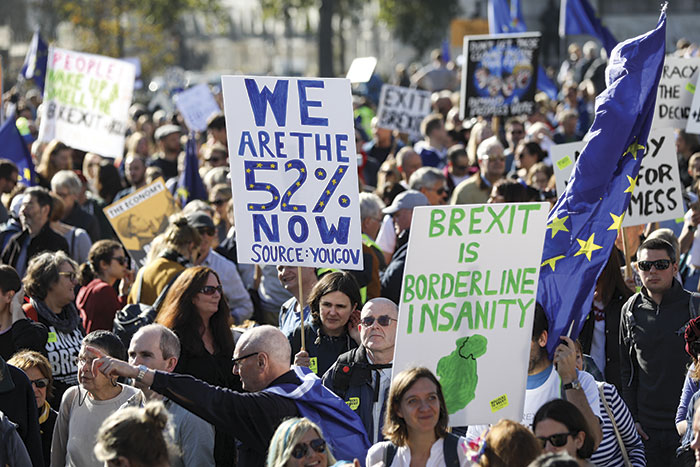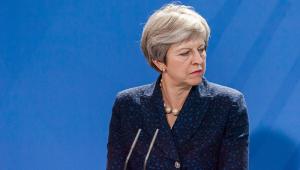
Making political predictions in the current climate is a mug’s game, but here goes.
The next election will be fought around whether we should go back into the EU.
If that is enough to make you want to emigrate, there are two immediate caveats.
First, the next election might be quite soon; and, second, the way things are going it is conceivable that we may never leave at all.
But assuming that Theresa May either gets the withdrawal agreement with the EU through parliament or the UK leaves next March without a deal, that will not be the end of the matter. Just as Europe has dominated British politics in one way or another for 60 years, it will continue to do so.
In fact, as a new book by Simon Jenkins observes, it has been a contentious matter for the best part of 1,600 years, ever since the last Romans left in about 410 AD.
Jenkins identifies nine occasions when Britannia, England or the UK has left and rejoined some iteration of continental Europe, either directly as with the EU or by intervening in its wars. So it is not especially rash to forecast that Europe will continue to be a central issue in British politics or that, given the fact 16 million people voted to remain, there will be huge pressure to go back in, especially if a new outer tier develops beyond the single currency zone.
However, this may require a political realignment of the sort seen occasionally over the past 200 years – the emergence of the Liberals out of the Whigs in the 19th century; the Tory split over global trade at the dawn of the 20th; and then the eclipse of the Liberals by Labour after the First World War.
‘After Brexit, it is not fanciful to envisage two new parties emerging in Britain: one centred around the Tories but attracting followers from Labour pro-Brexiteers and Ukip supporters; and a second pro-EU party made up of Labour centrists, Lib Dems and Tories who want to rejoin.’
There is no axiom stating that a party must always exist. Indeed, the reason they exist at all is to represent particular interests, either property ownership (Tories) or organised labour (Labour). But the old divisions have blurred, as the march of populist parties across Europe testifies.
People are just as likely to identify with nation, ethnicity or region as with class. As Brexit has demonstrated, globalism is the great force in modern politics. Anti-immigration sentiment largely among those who feel left behind is driving populist movements but could become mainstream in the UK as it has in the US under Donald Trump.
After Brexit, it is not fanciful to envisage two new parties emerging in Britain: one centred around the Tories but attracting followers from Labour pro-Brexiteers and Ukip supporters; and a second pro-EU party made up of Labour centrists, Lib Dems and Tories who want to rejoin.
The People’s Vote campaign has shown how this could work, amassing supporters across the political divide. Co-chair Chuka Umunna has denied reports that the PV campaign is a prototype party, but that’s because they want a second referendum. If they don’t get it and the UK leaves, the argument will change.
True, the auguries are not good. The SDP flourished briefly until blown away by the resurgence of Thatcherism brought about by the Falklands War and economic recovery, though arguably it was reincarnated in the government of Tony Blair. But Labour is now run by the hard Left and will not be prised back by the moderates. A new party is their only way out.
What realignments need is leadership and direction, both of which are lacking at the moment but will emerge after Brexit and in unexpected ways.
Whether the union, for instance, will survive the fallout is hard to tell, and another independence referendum looks certain. In other words, Brexit is not the end of the story but the beginning of a new argument over the politics of national identity – or just the continuation of a very old one.



















